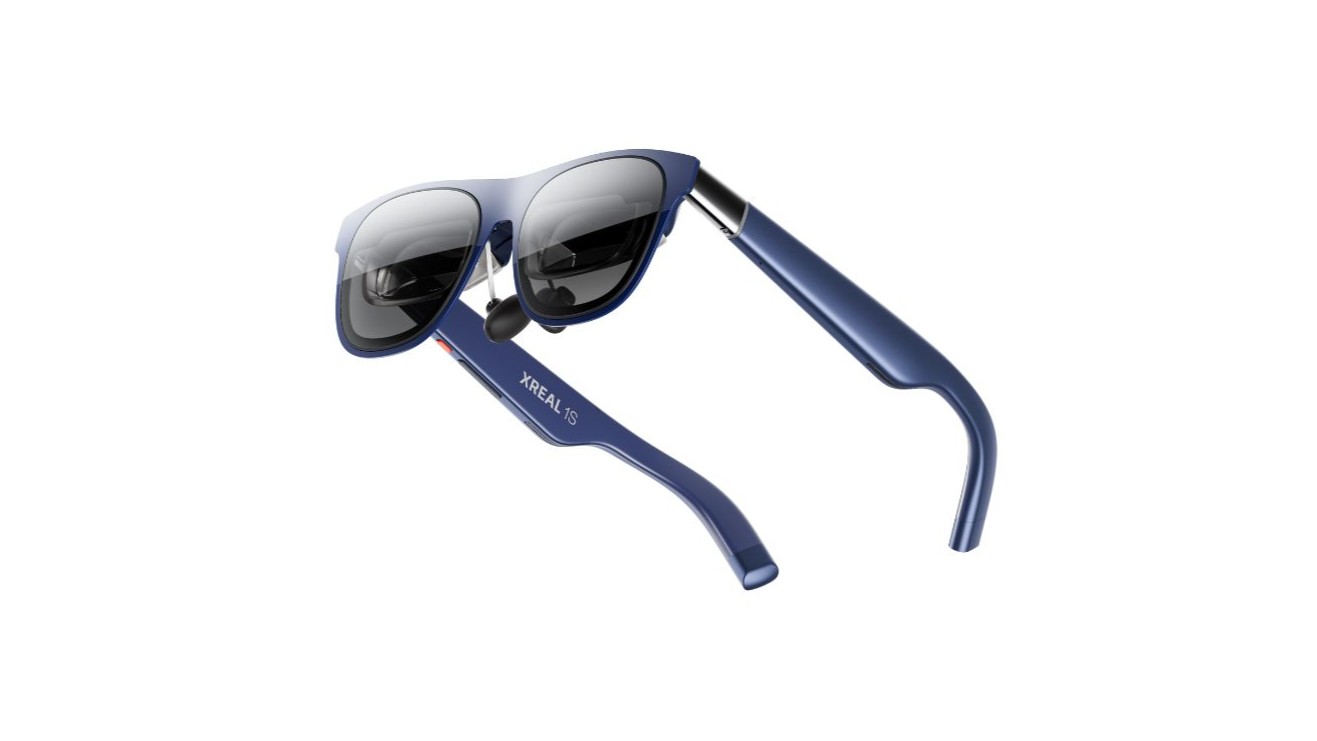Here's what we want to see from Google in 2022
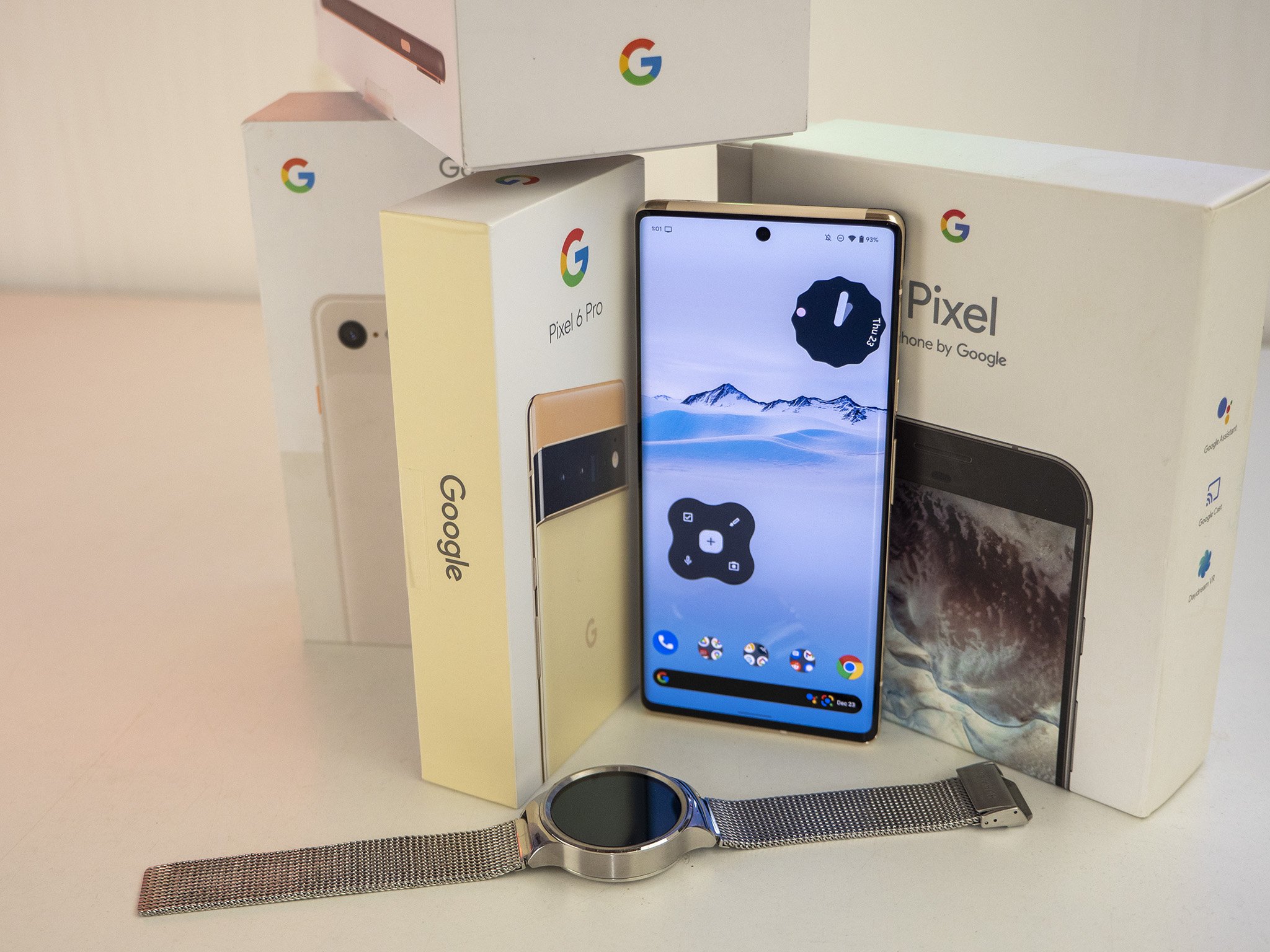
At times it felt like the longest year ever, and at others, it seemed to absolutely fly by. Despite all the ups and downs, we find ourselves finally at the end of an eventful and memorable 2021.
As we look forward to 2022, we asked a handful of our editors, staff writers, and freelance contributors what they hope will come from Mountain View over the coming twelve months. No major area was off-limits, from Google's software, apps, and services to its various hardware divisions and corporate culture and ethical obligations.
So without further ado and straight from the keyboards of our talented team of Android experts — here's what we want to see from Google in 2022.
Software and apps
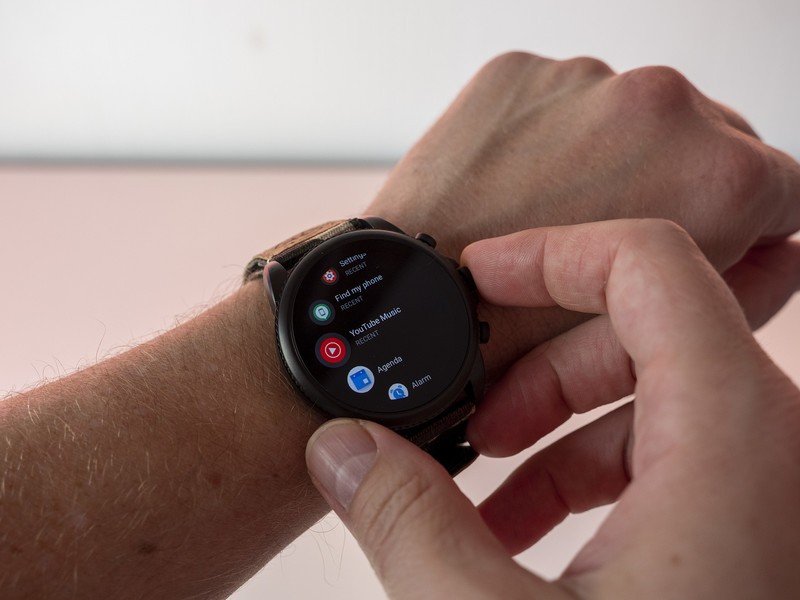
Ara Wagoner, staff writer
I had hoped, perhaps vainly, that 2021 would be the year that YouTube finally got off its ass and made YouTube Music a consistent, stable contender. While YouTube Music improved this year in both features and selection, there are still so many basic things that the service needs to improve. Casting still remains broken at its core, so many new features either take months to roll out to everyone, or they'll only roll out to iOS. Really, YouTube? Really?!!
YouTube Music is fantastic, but it still lags behind Spotify and others for basic features like library management.
Yes, YouTube Music finally came to Wear OS. Recap 2021 is about five times better than last year in every way — except the rollout, which took weeks and left its most hardcore listeners waiting the longest.
Yes, the issues with downloaded music disappearing are gone. But library management is still a dumpster fire — especially for uploaded music, a feature that well and truly makes YouTube Music stand out from the pack. And yet, the algorithm for mixes and radios still needs a significant overhaul, and casting has been broken since literally 2015. Can we please fix that in 2022?
Get the latest news from Android Central, your trusted companion in the world of Android
YouTube proper made strides this year in trying to limit misinformation and hate speech — about six years too late, but what else is new? But it still has epic journey-lengths of work ahead of it when it comes to moderation and limiting the reach of problematic content to keep anyone else from falling down the rabbit hole. More robust tools are also desperately needed to help channels foster a healthy, inclusive discussion so that there can be a happy middle ground between "comments are a dumpster fire" and "comments are closed/restricted to prevent things from getting out of hand."
And don't think I haven't forgotten about that atrocity of limitations around kids' music and the mini-player, YouTube! It makes YouTube Music exceedingly hard for parents or younger users and makes zero sense to have those limitations in YouTube Music where you can't see comments or video recommendations. Of course, more COPPA changes are needed, too, but can we please fix what your last slapdash "solution" broke first?
Chris Wedel, contributor
Google has done a good job of building out the Home app with many great features, but at what cost? I have a lot of smart home devices, and I am very much in the Google ecosystem using a lot of excellent Google Home compatible devices via the Home app and some great Google Assistant speakers to control them. However, it seems that Google is adding so many features to the Home app that it's getting muddled.
Often when I load up the app to access a smart home device, the app lags at recognizing what the device's current status really is. For example, the app will say a group of lights are on (when they aren't), or when I turn them off, the app will give me an error saying that it was unable to perform the task — when it actually did complete it correctly. Google needs to take some time to clean up the Home app to reduce lag and add in some features that have been lacking for far too long.
Google needs to step up its game when it comes to kids' content and parental tools.
Aside from the updates to the Google Home app, I'd love to see Google step up its efforts to expand on the Kids Space for tablets. As it stands now, to enable the feature, you have a very limited number of tablets to pick from that are compatible with it. Right now, Amazon owns the kids' tablet space for Android users with its excellent Fire Kids tablets, and it has little to do with the hardware that is offered. Aside from a great price point, it's all about the Amazon Kids+ software — and the two-year worry-free warranty.
Google's Kids Space is a solid complement to Family Link in giving parents oversight to their child's device usage. But regardless of how good Kids Space might be, it doesn't matter if it it's inaccessible. Amazon's Fire tablets lack some basic apps that can be useful, like YouTube and even Gmail. Samsung has its own software layer for kids, but it's only available on Samsung devices. Google needs to expand the Kids Space service to more tablets, and quickly.
Derrek Lee, news writer
I want Google to get serious about Wear OS. The company has demonstrated that it's putting in the effort, which has shown in its work with Samsung on the Galaxy Watch 4 series, but there's no reason to make other OEMs wait so long. Taking all this time between major Wear OS 3 launches could result in waning interest, especially if what we get when it does finally launch is less than impressive.
And if Fitbit is going to be integrated with Wear OS, the company needs to figure out where Google Fit fits into this plan. If Fitbit is going to replace Google Fit, I'm fine with that, but don't lock functions already available in Fit behind a paywall.
Nick Sutrich, senior content producer
Beginning with Android 9 Pie, I felt like Android was slowly losing its soul. From launching an awful new Overview screen to losing all the wonderful colors that we'd been enjoying since Android 5.0 Lollipop, Google's OS became less playful, less inspiring, and more of a boring copy of industry trends. That all changed with Android 12, which not only got Android's color back but also seems to be getting its soul back, as well.
But while the big redesign looks and feels incredible on a Pixel phone, Google made a few silly decisions along the way. Paring down the number of quick toggles in the notification shade, for instance, is far less useful than it used to be.
I know several folks who have received the Android 12 upgrade on their Pixels and wondered what the heck happened to their favorite buttons. Users should be able to stack more buttons here, and the UI should stretch or shrink based on user preference. It fits with Android 12's theme of personalization and is just better for everyone.
Android 12 is a welcome refresh, but some things changed just for change's sake.
Google also moved the devices pane and Google Pay buttons out of the power menu and into the notification shade, now requiring two swipes down and an extra tap to do what a single button press used to in Android 11. Yet again, this was another bizarre decision that many users — including myself — have come to hate in the latest version of Android. Google clearly made this move to echo Samsung's One UI design, but it was a bad decision and should be reversed.
Next is that awful, AWFUL Overview screen that's been around since Android 9 Pie. Google came up with this design to allow users to copy text and links from one app to another more quickly. I don't know about you, but I've never once used this functionality in my many years with Android phones since this feature change occurred, and I would much rather see multiple app tiles on the screen instead of one giant, useless tile.
This is supposed to be a multitasking screen, Google. However, seeing one app tile at a time is quite the opposite of multitasking, and I find myself never even bothering to swipe up and hold to get to this screen. It's useless, and it needs to be replaced. I'm all for keeping it around for users who like it, but please give us options, Google. It's the worst part of using a Pixel phone for me.
Pixel phones and accessories
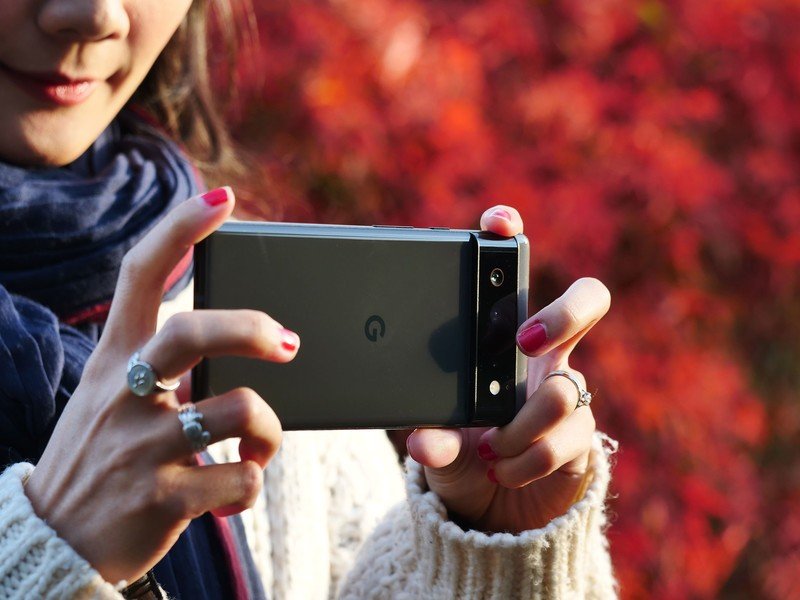
Alex Dobie, executive editor, U.K.
The Pixel 6 represented a soft reset for the Pixel series, bringing the strongest ever Google phones to market in 2021. However, if Google wants to see success in the smartphone business in 2022, it's essential that the company stays its course and continues to do its own thing.
This past year has shown Google's commitment to competing in phone hardware as well as AI and cloud-driven software features. Or in other words, Google is finally paying attention to the late Apple founder Steve Jobs, who said, "people who are really serious about software should make their own hardware."
I want to see Google really push Tensor to the limits to challenge Qualcomm and Apple.
So, in addition to a Tensor-powered Pixel 6a, I'd like to see Google attempting to bring the heat to the likes of Qualcomm and even Apple in terms of computational horsepower at the high end. The journey that began with Google building its own smartphone and recently pivoted into the first Google-designed phone silicon will inevitably lead to the company eventually developing its own custom CPU cores and even 5G modems. For the sake of competition — and lighting a fire under Qualcomm in particular — I'd like to see that sooner rather than later.
Harish Jonnalagadda, Asia editor
I want Google to figure out its hardware strategy in 2022. The Pixel series continues to be the only flagship that isn't sold in most global markets, and that's fine — as long as Google is clear about its vision for the brand. But that hasn't been the case; Google launched select products in the Pixel series in countries like India and then left users guessing as to whether it would continue to release upcoming models.
For instance, the Pixel 4a was released in India four months after its global launch, but Google didn't bother bringing the Pixel 5a to the country. The same goes for the Pixel Buds A-series; they launched almost as an afterthought, and it felt as if even Google wasn't sure why it introduced them in the market.
It's this lack of clarity that makes Google's hardware efforts feel amateurish. I want Google to come up with a coherent strategy for its Pixel and Nest hardware and follow through with it in 2022.
Jerry Hildenbrand, senior editor
I have a feeling that adding just one extra year of support to the Pixel line is better for the environment than shipping phones without a charger.
Google has already stretched out the nominal life of a Pixel 6 to five years (I'm purposefully only counting security and operational patches here) because it has control over how long the Tensor SoC is supported. If Google can do five years, then it can surely do six years.
Chris Wedel, contributor
My love of smartwatches is no secret, but if there's one brand that I've been waiting to emerge from the shadows, it's Google. Though 2022 seems like it may be the year that we finally get a Pixel Watch, Google has been dragging its feet for way too long. The Pixel Watch is one of the final pieces of the puzzle missing from the hardware efforts for Google.
Google needs to spread the Wear OS 3 love to other smartwatch OEMs, not just Samsung.
Google allowed Wear OS to flounder for many years before convincing Samsung to help out with the Galaxy Watch 4. While many people have loved the device, I did not, and it was mostly because Google gave Samsung too much control over the new Wear OS 3 launch. One of the things that make the Pixel phones so wonderful is their distinct Android interpretation. Samsung's Galaxy Watch 4 is barely noticeable as a Wear OS device, and because it is still the only product with Wear OS 3, Google is losing hype in the wearable software. 2022 is the time for Google to recapture interest in its platform and capture some of the smartwatch market for itself — and I can't wait.
Namerah Saud Fatmi, contributor
Google finally gave us a true-blue flagship series with the Pixel 6 and 6 Pro. In addition, the Alphabet-owned company is slowly expanding its consumer tech portfolio with the Pixel Buds and the rumored Pixel smartwatch, besides its already successful lineup of smart home products. But there is one thing that I want to see from Google more than anything else: A Made by Google stylus.
How cool would a Made by Google Pixel Stylus be in 2022? VERY.
One of the key unique selling points of Samsung's top-of-the-line phones is the S Pen. Heck, they even managed to incorporate the S Pen Pro into the folding Galaxy Z Fold 3, which is a genius move on Samsung's part. I want to see Google play around with this concept and include a stylus in future Pixel phones or launch it as a standalone accessory. If they make it compatible with a wider range of devices, it could be a great add-on for Chromebooks as well.
Considering the ginormous 6.4-inch and 6.7-inch AMOLED displays on the Pixel 6 series, a Pixel stylus makes perfect sense. Users can get so much use out of a stylus, and Google can come up with competing air gestures and innovative features to finally give the S Pen some real competition. With the advent of the amazing Tensor chip, it's Google's time to innovate and experiment. The in-house chipset could help Google deliver a stylus with unusual capabilities made possible only because of Tensor's prowess.
Nest and Chromebooks
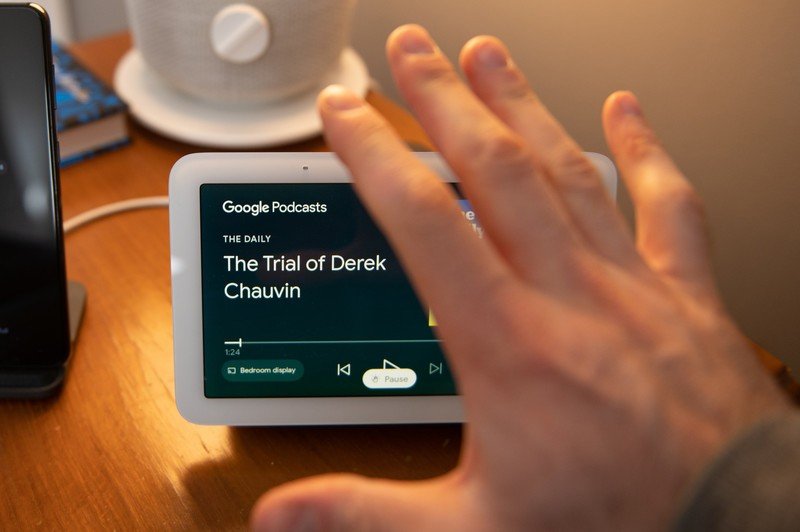
Chris Wedel, contributor
When it comes to Nest hardware, all that I own are smart speakers and a thermostat. So while I feel that the Nest thermostat is pretty wonderful, the speakers are due for some upgrades.
Amazon is constantly evolving its Alexa speakers with better processors, new form factors, as well as software. In my opinion, Google Assistant is still leading the pack in digital assistants, but the in-home hardware that supports it — specifically the Nest Audio — is starting to lag.
During Amazon's Fall 2021 event, it rolled out a host of new hardware and software features. Google is beginning to take an Apple-like approach to its Nest devices and wait to see what other companies do and then react. While that may work in some instances, as a fan of Nest smart speakers, I'm becoming envious of the devices Alexa is running on. Google is full of brilliant people, and it's time to let some of their wild ideas for Nest hardware out.
Derrek Lee, news writer
I would like to see more investment in improving the smart home. I'm a big fan of Google's smart home hardware, like its Nest speakers and displays, but Google could definitely do more. The more Echo displays Amazon announces, the less compelling Google's offerings become. I want Google to start thinking outside the box for its displays and other hardware. Give us a truly smart home. Additionally, I want to see smart home controls extend to Wear OS via a dedicated app and tiles for quick access to certain functions and routines.
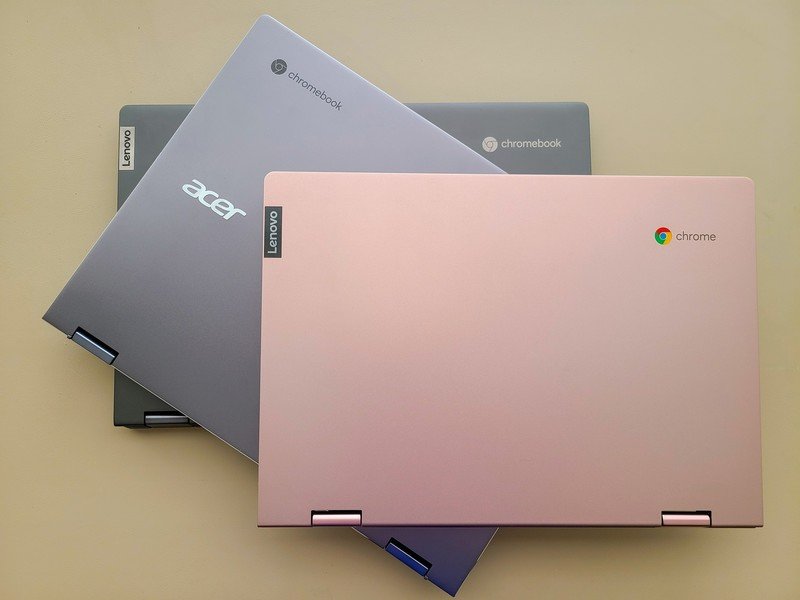
Jerry Hildenbrand, senior editor
Google, please update the Pixelbook line in 2022. The display, the keyboard and trackpad, and the build quality are worth doing again. Don't change anything here, but give us newer and more efficient processors and be OK with having another product that isn't going to make any money. You've never been afraid to lose money if it meant making something you think is the best, so let's do it one more time.
Company culture

Jerry Hildenbrand, senior editor
Sometimes you want something that you know you're never going to get, and this is one of those times. I want Google to stand up to China.
The Chinese government routinely commits what most people in the west view as privacy violations. Of course, Google must follow Chinese law to stay in the government's good graces, but seeing Google give in to forced tracking of users and draconian control over its own services leaves a bad taste in my mouth — especially when Google tells us all how much it values human rights.
I know this will never happen because China is a gold mine when it comes to technology companies like Google, and failure to "follow the rules" would mean billions in lost revenue. But I also know the Chinese people deserve any respect that can be given, and a defiant Google could serve as a bright spark.
Derrek Lee, news writer
What can Google do to improve its company culture... well, maybe it can hire more Black people? Google's most recent diversity report was just sad and really shows that the company has a lot of work to do in creating a welcoming and inclusive environment for minorities. Make Google a company that everyone wants to work for in 2022!

Jeramy was the Editor-in-Chief of Android Central. He is proud to help *Keep Austin Weird* and loves hiking in the hill country of central Texas with a breakfast taco in each hand.
